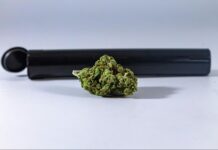
Cannabidiol, commonly known as CBD, has been in the spotlight in recent years, popping up everywhere from morning smoothies to skincare products in Australia. But what exactly is CBD, and why has it become so popular in health and wellness?
What Is CBD, and How Does It Differ from Marijuana and Hemp?
CBD, or cannabidiol, is a natural compound found in cannabis plants. Unlike its more famous cousin, THC (tetrahydrocannabinol), which is the psychoactive component responsible for the “high” associated with marijuana, CBD does not produce intoxicating effects. CBD is often derived from the hemp plant, a variety of cannabis that contains little to no THC, making it suitable for therapeutic use.
In Australia, CBD is legally regulated, and only certain forms and concentrations of CBD are permitted. Currently, CBD products are primarily available with a prescription under Australia’s Therapeutic Goods Administration (TGA) regulations, with low-dose CBD oils potentially available over-the-counter through pharmacies pending approval.
The Legal Status of CBD in Australia
Unlike the United States, where CBD laws vary by state, Australia regulates CBD at a federal level. The TGA oversees the classification and availability of medicinal cannabis, including CBD. For most Australians, accessing CBD legally requires a doctor’s prescription under the Special Access Scheme (SAS) or Authorised Prescriber Scheme. In February 2021, the TGA approved low-dose CBD products for over-the-counter pharmacy sale; however, as of now, no products have been formally approved for this purpose.
Health Benefits of CBD
Although CBD is marketed worldwide as a health booster, the strongest scientific evidence supports its use in treating specific medical conditions, such as some forms of epilepsy. In Australia, the TGA has approved CBD for use in severe forms of epilepsy, like Dravet syndrome and Lennox-Gastaut syndrome, in children. Clinical trials have shown CBD can significantly reduce the frequency of seizures in these conditions, with Epidiolex, a CBD-based medication, being one of the few CBD treatments approved by the FDA in the United States for epilepsy.
Beyond epilepsy, CBD is being researched for its potential in managing various conditions, such as:
- Anxiety: Some studies suggest CBD can alleviate symptoms of anxiety, although more research is needed, especially in relation to its long-term effects.
- Insomnia: CBD may improve sleep quality, particularly for people who experience anxiety or chronic pain that interferes with restful sleep.
- Chronic Pain: In animal and human studies, CBD has shown promise in reducing pain and inflammation, especially for conditions like arthritis and neuropathic pain. More clinical trials in Australia are needed to establish its full potential in pain management.
- Substance Dependence: Preliminary research suggests CBD could help reduce cravings and withdrawal symptoms associated with substance dependencies, including tobacco and opioids.
Is CBD Safe?
While CBD is generally considered safe, some individuals may experience side effects, such as nausea, fatigue, and irritability. Because CBD interacts with liver enzymes that process other medications, it can affect the metabolism of certain drugs, such as blood thinners. In Australia, individuals prescribed CBD are typically monitored by healthcare professionals to avoid adverse drug interactions.
Another point of caution involves liver enzyme levels. High doses of CBD may cause mild liver-related abnormalities, as seen in some studies, so regular blood tests might be recommended for people taking CBD long-term or in high doses.
Choosing Safe CBD Products in Australia
The CBD industry remains largely unregulated globally, with the U.S. Food and Drug Administration (FDA) and other international agencies, including Australia’s TGA, raising concerns about misleading marketing practices and the unverified content of some CBD products. In Australia, it is essential to obtain CBD through a trusted, certified medical provider to ensure that the product meets legal and safety standards. Reputable CBD products often include a Certificate of Analysis (COA), which verifies the product’s ingredients, potency, and absence of contaminants.
Australian consumers should avoid purchasing unregulated CBD products online, as there is no guarantee that these products contain the stated amount of CBD or are free from harmful additives. Always look for third-party laboratory testing to confirm purity and potency.
How Can CBD Be Taken?
CBD is available in many forms, including oils, capsules, topical creams, patches, and vapes. Each delivery method provides different absorption rates and onset times:
- Topicals: CBD-infused creams or balms may help with localized pain and inflammation and are applied directly to the skin.
- Oral Forms: CBD oils, tinctures, and capsules are taken orally and enter the bloodstream through the digestive system, providing whole-body relief.
- Sublingual Options: Placing a tincture under the tongue allows the CBD to enter the bloodstream more directly for faster effects.
- Vaping and Smoking: While smoking CBD products is not generally recommended due to potential respiratory risks, some individuals choose vaping as a way to feel the effects quickly.
For Australians seeking to incorporate CBD into their wellness routines, it’s recommended to consult with a healthcare provider to choose the most suitable form and dosage.
International Uses of CBD
Outside of Australia, other countries have explored broader applications of CBD. Sativex, a medication containing both CBD and THC, is approved in several countries for managing spasticity associated with multiple sclerosis. Studies have indicated that the combination of CBD and THC in Sativex may provide more effective pain relief for some conditions, though its availability in Australia is restricted to specific cases.
Ongoing Research and Misconceptions
CBD has garnered attention as a potential treatment for numerous health issues, but not all claims are backed by scientific evidence. In particular, unsubstantiated claims that CBD can cure or prevent major diseases, such as cancer or COVID-19, have led to scrutiny and regulatory warnings. Researchers continue to study CBD’s effects to better understand how it can be used safely and effectively for conditions such as chronic pain, mental health disorders, and neurological conditions.
Australia is conducting a growing number of clinical trials and studies to evaluate CBD’s full potential, ensuring that Australians can make informed decisions based on reliable information. However, it’s essential to be aware of the limitations: without standardized dosing guidelines and more conclusive research, individuals should approach CBD use with caution and realistic expectations.
Final Thoughts on CBD Use in Australia
While CBD has demonstrated promising benefits for some medical conditions, particularly epilepsy, more robust studies are required to establish its efficacy and safety in other areas. The lack of regulation in the CBD market means that consumers should be careful in selecting products, choosing those approved by Australian authorities or accompanied by a COA to ensure product quality and safety.
If you’re considering CBD for therapeutic purposes, it’s crucial to speak with your healthcare provider to avoid any potential interactions with other medications. The evolving landscape of CBD research is paving the way for safer and more informed use, potentially expanding access to CBD treatments for Australians in the near future.







